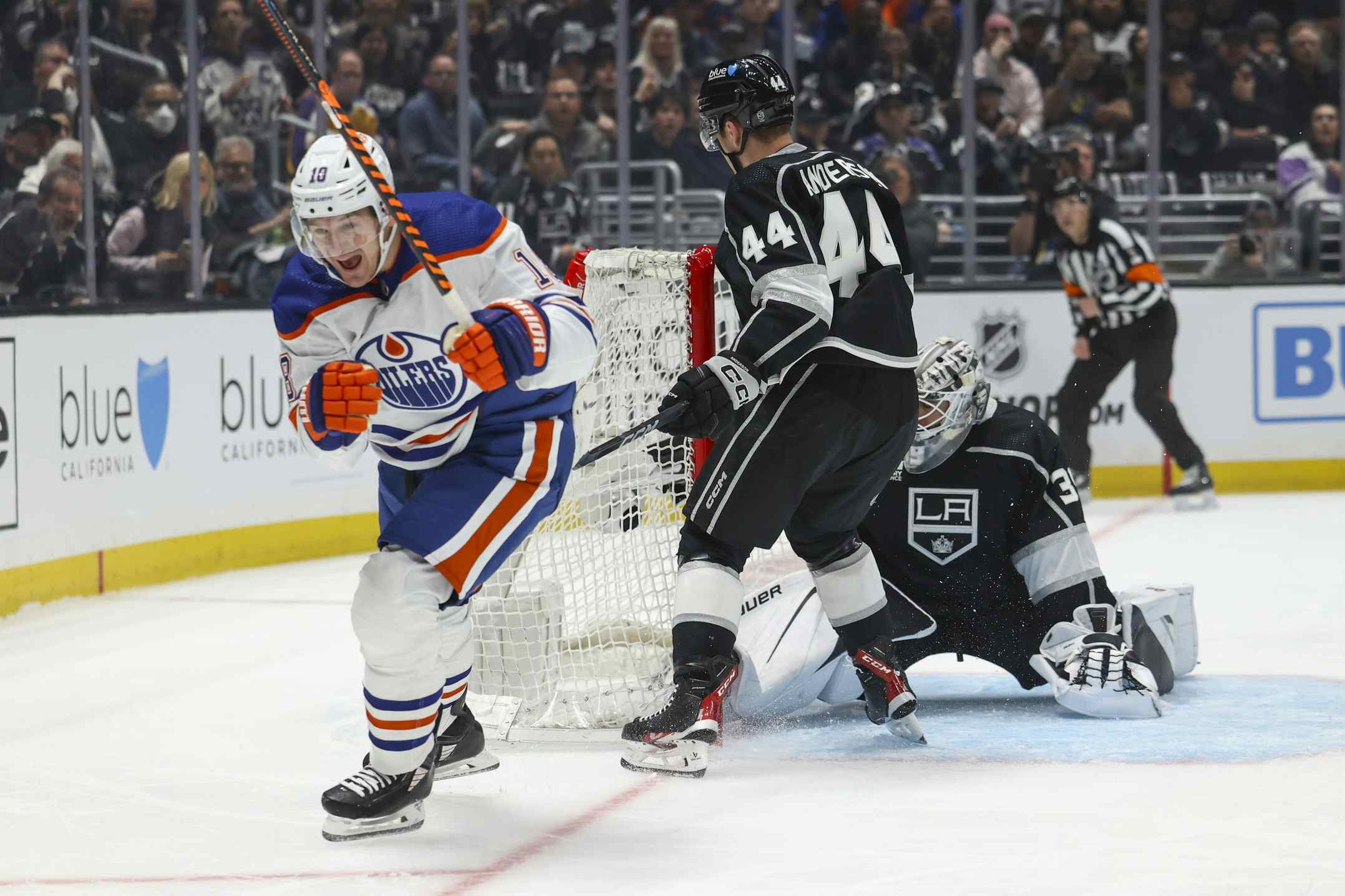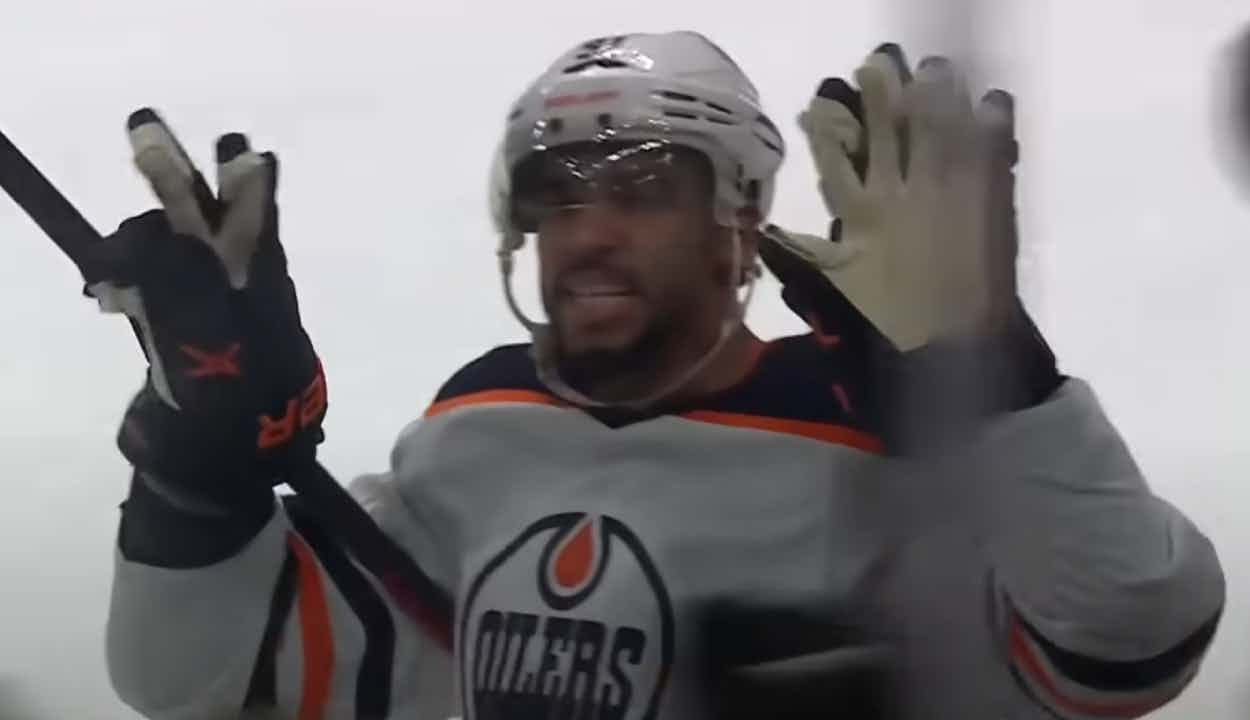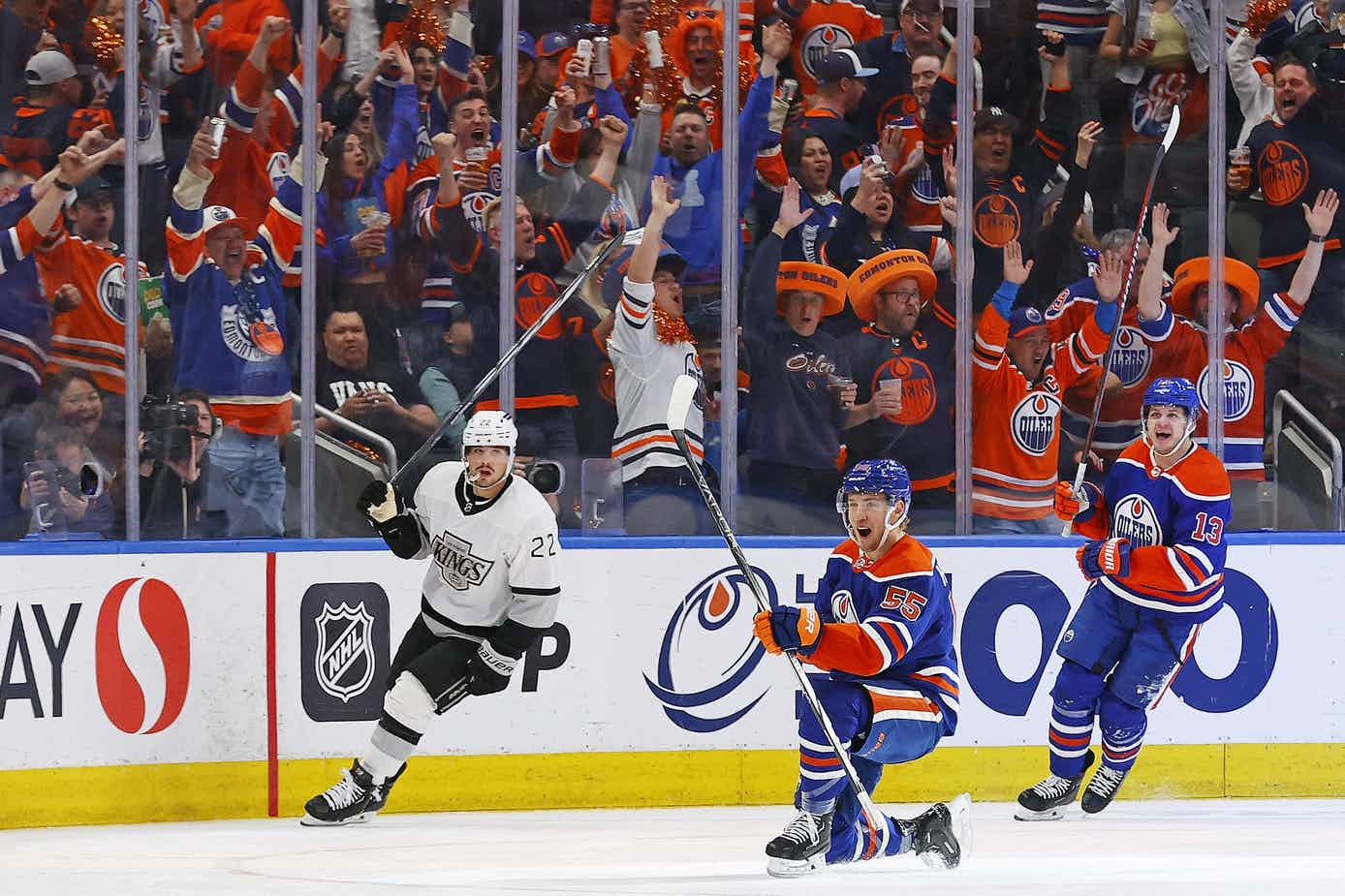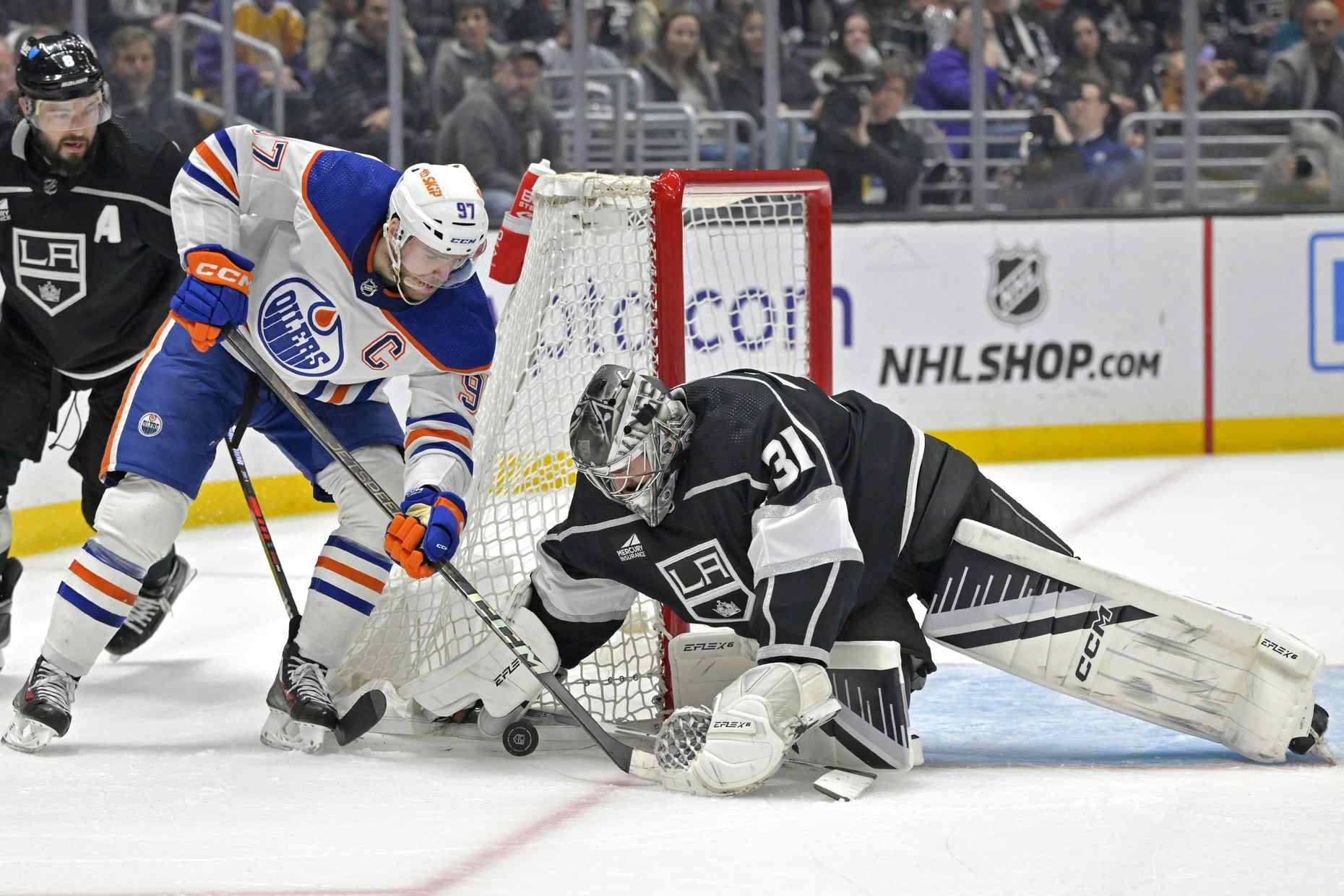SEAN BURKE SHARES HIS THOUGHTS ON GOALTENDING
By Jason Gregor
10 years ago
Sean Burke played 17 seasons in the NHL, including a five year stint with the Hartford Whalers as well as stops in New Jersey, Carolina, Vancouver, Philadelphia, Florida, Phoenix and Los Angeles. He had a solid career, but now he’s widely considered one of the best goalie coaches in hockey.
Burke is currently the goalie coach and assistant to the general manager for the Phoenix Coyotes as well as one of four members of Hockey Canada’s Program of Excellence.
I caught up with Burke and got his views on goaltending coaches for young players, technical advice and how he works with NHL goalies.
What impressed me most about Burke was his enthusiasm and passion when it came to amateur goalies, and his fear that many of them are being over coached. Here is our conversation, and my thoughts are in italics.
Gregor: How much has it refined the position having goaltending coaches throughout minor hockey? Has it made goalies better?
Burke: Well it’s interesting; I think that there is good and bad in that. I don’t think that bad coaching is better than no coaching at all. I worry sometimes that a lot of kids at a young age are getting some coaching that maybe isn’t the best thing for them, and if they were just out there having fun, competing and playing hard they might learn just as much at that early age.
There are some great goalie coaches, there are some benefits to these young kids, the instruction that they are getting, but I think that it’s gone a little overboard and that there are too many young goalies out there getting instruction from guys that aren’t qualified.
**Over coaching for every position has become an issue in minor hockey, and considering there are very few coaches who played the position, I can imagine it would be extremely difficult to find enough proper coaches for young goalies.
Gregor: How do you rectify that problem?
Burke: Well, good question. I think that in Canada we are starting to discuss those issues and talking about possibly certification for goalie coaches and putting some guidelines together for our young goaltenders. It will be guys who have played the game for a long time, guys that have been good coaches throwing ideas back and forth and coming up with some solutions, because I really think that it has become a little bit of a problem.
I do think that there are some great coaches out there and there are some real benefits to some young goaltenders getting some instruction, but I think that some of the young guys now are starting to get overwhelmed with the amount of information. I think that it’s taking a little bit of the athleticism out of the game and as these kids get older, I think it’s affecting them sometimes in almost a negative way.
So again, there is a balance there and I think that there are a lot of things to discuss, but I think that Canada is starting to recognize that there is coming a point where we are going to have to do some things about it.
Gregor: Is there one thing that can be a really bad type of coaching that people are giving young goaltenders?
Burke: Well, I would say one thing. There is a thought process that you can take any kid, put a pair of skates on him, give him some equipment and teach him technically how to play the game and he’ll be a good goalie. I think that there is some danger in that. I don’t think that any kid when he is seven or eight should put the pads on and say ‘I’m going to be a goalie and that’s all I’m going to do.’ I think that there is real value in kids learning how to skate properly, have fun, play some shinny hockey, and really understand the game because to me, hockey sense is just as important as in any other position.
I don’t know how you learn hockey sense if all you ever do is put the pads on and are taught this is the way to butterfly, this is the way to play a wrap around. I think that the best thing for any goaltenders is to, at a young age, play the game, score some goals, get out there on the ice and skate with your teammates and have some fun.
Then maybe when you get to be ten, eleven or twelve and you’re real serious about playing goal, you have a real understanding about how the game is played and what forwards and what defencemen see on the ice. I just think that there is real value in that and it learning how much hockey sense you have as you get older.
Then maybe when you get to be ten, eleven or twelve and you’re real serious about playing goal, you have a real understanding about how the game is played and what forwards and what defencemen see on the ice. I just think that there is real value in that and it learning how much hockey sense you have as you get older.
** Excellent answer. Way too many coaches and parents feel their son or daughter should only play one position, mainly because they believe it gives them a better chance to master it. I’ve always felt kids should play defence and forward, and while most kids don’t want to play goalie, it is unfair to force or encourage one child on the team to only play goal when they are six, seven or eight.**
Gregor: I love that philosphy. It seems many of us forget about goalies playing out at a young age. Should associations make it mandatory that teams can’t have only one goalie when kids are young?
Burke: Yeah. I mean hockey, it’s a fun game and you can ask any goaltender for the most part who has played in the National Hockey League or who has played professionally, the first thing they do when they take the pads off they want to do is play shinny or play defence or play forward. I’m an example of that. I started playing men’s hockey as a defenceman the day I retired. It’s a great game and it’s a fun game to play in.
I just think that if you pigeon hole any young player and put him at one position and don’t let him experience other parts of the game, I think the kid is missing some value in just going out there and learning about the whole game and a goaltender is no different.
My son is actually in Portland, Brendan, and he’s with the Winterhawks and he’s having an excellent season. However, he didn’t start playing goal until he was ten or eleven years old. I wouldn’t let him. I said to him, ‘I want you to skate for a couple of years, play forward and enjoy the game,’ and it hasn’t affected him. He’s 18 now and he maybe was a little bit behind, technically, some of the other kids, but that’s only a small part of the game, the technical side. There is so much more to the position outside of that.
**I suspect you will have many parents and coaches arguing about this, mainly because if they rotate the position they will give up too many goals some games when certain kids are in net. Too many minor hockey parents and coaches believe winning is the most important aspect of minor hockey. It shouldn’t be. Developing kid’s skills and ensuring they have fun should be priority number one.
How many novice or atom hockey parents who are reading this have only one or two kids playing goal on their team? I guess close to 50%.**
How many novice or atom hockey parents who are reading this have only one or two kids playing goal on their team? I guess close to 50%.**
HOCKEY SENSE….

Gregor: Do you feel that if a goalie doesn’t have hockey sense as a foundation the technical stuff really isn’t going to matter?
Burke: Well yeah, again I think that it is all about a balance. In my opinion, when a kid is young, and they start playing hockey, the most important thing at that age is to go out and have some fun and to compete and to learn how to work hard, how to battle, how to do all of those things that, naturally if you are going to be an athlete, they are going to come to you.
Once they realise, ‘I like that game and I have a little bit of ability’ then you can take a kid and show him a whole bunch of technical things and try to make him better.
I think that the mistake that we make in today’s game with young kids, and I’m seeing it more and more with goalies, is that we take him when he is six, seven or eight and we put him in the net and we show him every little technical thing that someone has read about, watched a video on, or some guy who played minor hockey says I can show you how to butterfly and how to do a V and a cheat push and all of these different terms. The poor kid is so confused by the time that he is eight or nine that all he knows how to do is basically go into a technical stance, and he hasn’t learned the other parts of the game.
So in my opinion, you have to have fun with it first. You enjoy it like most kids who go out and play shinny hockey or play on an outdoor rink. You don’t have a coach showing you anything, you go out and you kind of learn on your own and then as you move along when you get to the point where you have any kind of ability, then you can teach kids all of that technical stuff.
**A very interesting take from Burke when it comes to technique. Giving kids too much technical information at a young age can hurt them. It makes sense, because it is essentially the same as over teaching system play to the forwards and defenceman. Hopefully we don’t have too many goalies being inundated with too much technical coaching at a young age.**
Gregor: The Portland Winterhawks have their own goaltending coach, how do you ensure that you don’t contradict what their coach is telling your son? Do you work with the Portland goaltending consultant? How does that work?
Burke: Well it’s kind of funny, but first of all you have to believe right off of the bat that you don’t know everything about the game and I’m the first one to admit that. As long as I’ve played and as many great experiences as I’ve had in the game, I’m still learning myself at times. If you think that you have learned everything, that you know everything about the game, you’re in trouble.
I may not always agree with some of the things that my son is being taught or some of the things that he has been learning along the way from other people, but on the other hand I’ve also learned some things myself from people who have come along and showed him different things. You always have to be open to learning.
But again, I think that the most important thing is that when you have a young player who has some ability you have to let them be an athlete. What I do with Brendan (Burke’s son) is when I met his goalie coach Tyler Love, who I think does an excellent job, I put the pads on myself and went out on the ice and said ‘okay what are you going to show Brendan?’ and I went through it all.
I said ‘I agree with that’ or ‘I don’t agree with that’ but we worked closely and so the last couple of years I’ve just let him run with it and again, I don’t think that you are ever going to know everything about the position. The game evolves and you have to evolve with it, but I do believe first and foremost, especially as a goaltender you have to be an athlete and you have to have hockey sense. After that there are a lot of other things that you can teach a guy.
**Burke is a unique hockey parent because he played at a high level. I like his approach to always be opening to learning more about the position, but also that he allows the coach to coach his son. I’m guessing for most parents, one of the hardest things to do is bite your tongue and not tell your child to do the opposite of what the coach says. I’m sure that can be a battle sometimes.**
WORKING WITH NHL GOALIES…

Gregor: When you bring in an NHL guy, how do you start those lines of communication? How do you gain their trust in the case of a guy like Mike Smith to alter small things in his game?
Burke: Well I think that first of all I have a little bit of an advantage and I think that guys respect me when they come in because of the amount of years that I played. I don’t have a way about me that is it’s going to be my way or no way. I think that today if I believe that you should play a certain way, and you show me that you can do it better your way, then I’m open to that.
At the end of the day is about stopping the puck, it’s about being confident, it’s about being able to give your team the opportunity to win most nights. If a guy can show me that he is able to do that with his own way, then I’m not going to mess with it. But I do think that the guys that we have brought into Phoenix in the last few years are all really good athletes, they are guys that compete hard, but there are little areas of their games that they could work on. And that’s basically what I try to do.
I try to take some little things that I’ve learned over the years, and pass them on and work on them with the guys and then give them a lot of confidence. I let them know that I believe in them and that I know that they are going to go out and compete hard every night and make them feel good about themselves.
I think that when our goalies step onto the ice, they know that I have their back and that we’re not going to be sitting in the room criticising everything that they do. I understand that they are going to have bad nights, they’re going to give up a bad goal every once in a while, but it’s about keeping them confident and hopefully they believe in themselves enough to go out and win every night.
**The goalie/goalie coach relationship is very unique compared to the head coach and his players. There is way more one-on-one teaching, and it was interesing hearing Burke say his main job is to ensure the goalie has confidence. It is easier for him to do that with one or two goalies than it is for the head coach with 23 players. I doubt most head coaches feel their main goal is keeping every player confident at the same time. That would be impossible.**
Gregor: I’ve listened to some analysts describe goalies as ‘this guy lets the puck hit him.’ What are your thoughts on that? Is that a style, or do you prefer that he has hockey sense first, and you can’t just play an “allow the puck to hit me” style?
Burke: Well there’s a combination. I mean, I learned a lot when I was playing for Benoit Allaire, who is the best goalie coach that I had. He took what I had as my strength at the time, some experience in the league, some athleticism, I competed hard and I thought that I was in great shape, and he improved my technical game. I didn’t have a real good technical base because I had never worked on it that much and I didn’t really feel that it was something lacking in my game until I got to Phoenix and realised that there is still a lot that I can learn. So when I think of any goaltender in the world now, I think that the best goaltenders are going to be the guys that have a combination of both things. They are going to be very athletic and yet they are going to be able to, as you say, be able to let the puck hit them at certain times.
I don’t think that there is one particular way that you can play and be successful. If you are a great blocker, but you are not a guy that reads the play well or you are not very athletic, I think that you are going to be limited. And vice versa, if you are a guy who is very athletic but you have no base to your game and you have no technical side to it, then I think that you are going to have some trouble as well. To me it’s a combination and I think that after watching the last few seasons, it is the goalies who have both are going to be successful in the league.
**When you look at the best goalies in the game they seem to be athletic first and technically sound second. If a goalie isn’t athletic, I don’t think they can last or be successful long-term in the NHL.**
Gregor: As much as you work with the goaltenders, do you also map out game plans with Dave Tippett as far as how to attack opposing goaltenders? Are there obvious weak spots in opposing goaltender’s games?
Burke: I think that there is, but I don’t think that at this level shooting blocker side is going to cut it anymore. There is not anyone playing in the league, at least not a consistent goaltender, who has any glaring weakness night after night.
I think that there are weaknesses in styles. I think that there are guys that are too aggressive. I think that there are guys that are too erratic in their game, and if you are able to expose that on some nights you will be successful. I think that more than anything, we have the type of team in Phoenix that has to play a certain way to score goals. We are not going to create highlight goals by incredible plays; we are going to have to get lots of traffic and have to get pucks through from the point.
There is some value in knowing the other team’s goaltenders, but at the end of the day, I think that a lot of offence nowadays is created by traffic and getting pucks through and banging away at rebounds.
**Once again Burke makes an excellent point. When we’ve seen goalies in Edmonton struggle recently they usually aren’t getting beat in the same spot every game. They will allow a week goal over the shoulder one game, then the next a puck goes right through them, or the next game they whiff on a long shot. That jives perfectly with what Burke said regarding their style. Their style is opening up too many holes and teams are finding the openings.**
WRAP UP…
Burke is very passionate about goalies. I really enjoyed listening to his views and concerns about minor hockey goalies. I’m sure it would be difficult for any minor hockey association to get enough proper goalie coaches, however, after listening to Burke, I’m not sure they are needed until kids are 10-12 years of age.
If teams in novice and atom are switching goalies regularly you don’t need a savvy technical goalie coach, just one how can show them the simple basics and how to put their pads on properly.
I suspect you would get a lot of resistance from some hockey parents who would either want their son to play every game in goal, or never want their son to be a part of the goalie rotation. However, according to Burke it would be more beneficial to the kids if none of them were forced to play goal every game when they were seven or eight years old, and hopefully that becomes the norm not the exception in hockey circles.
Recent articles from Jason Gregor





